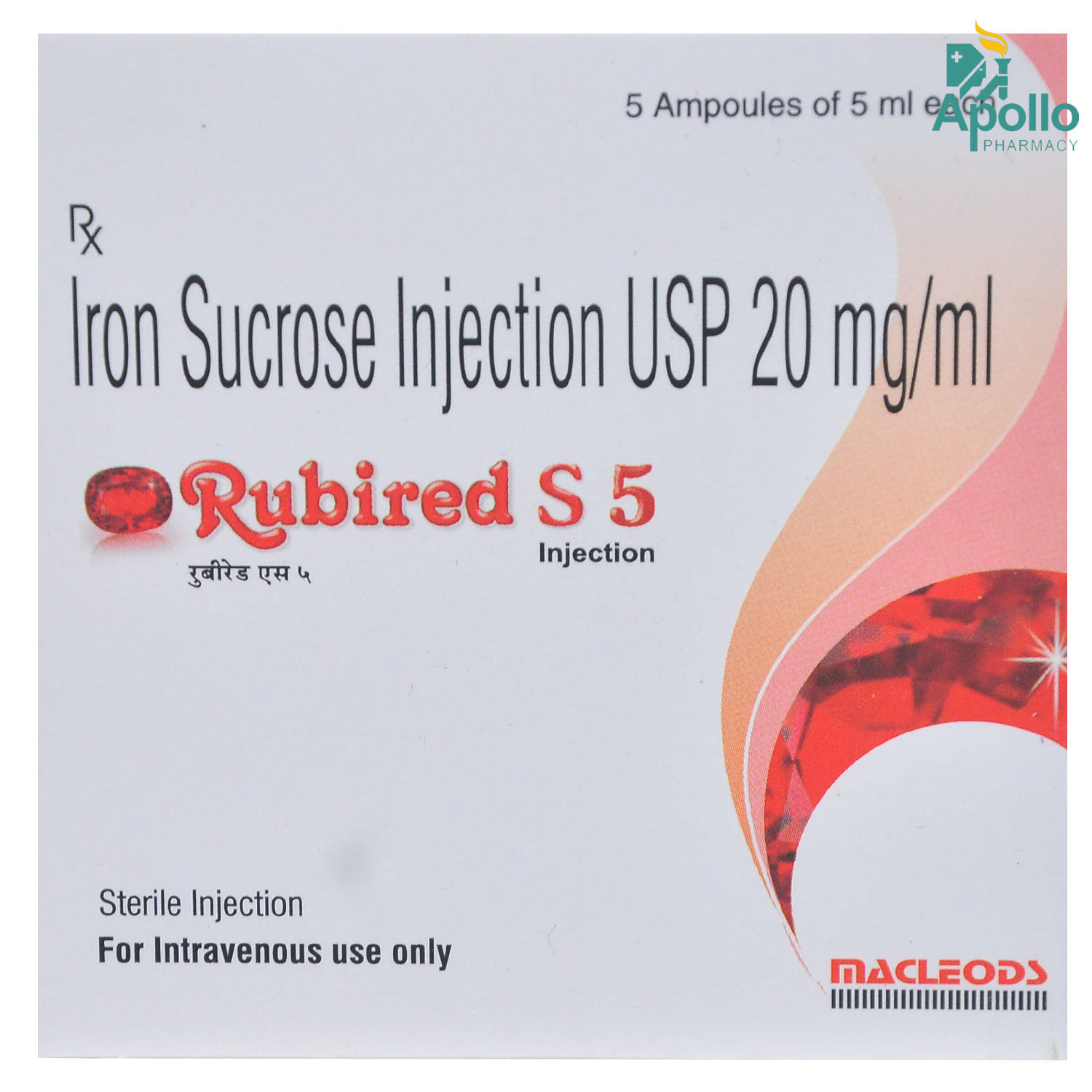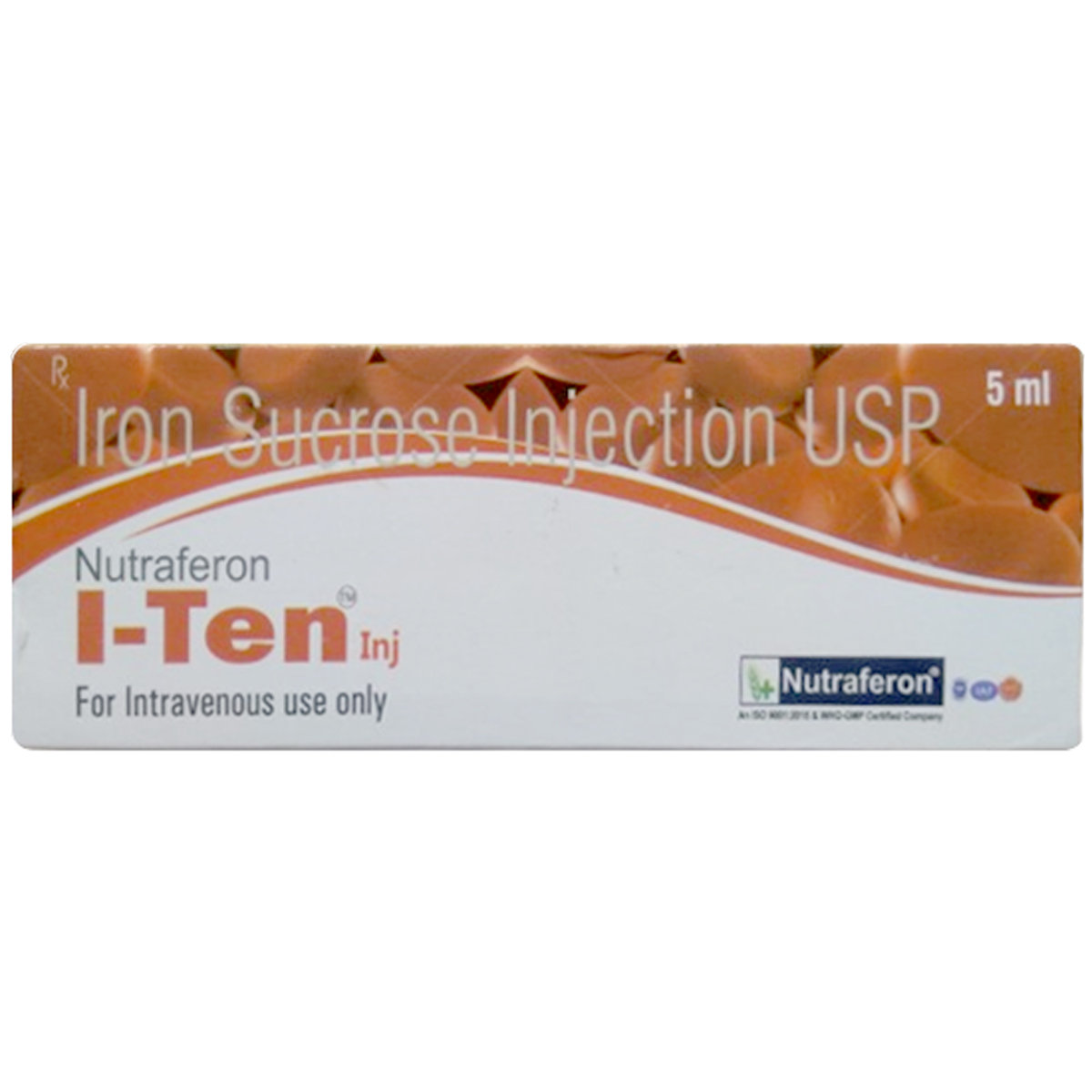- Home
- Gefer Forte Injection
Gefer Forte Injection Substitute
Gefer Forte Injection Substitute
Medicine Composition:
ELEMENTAL IRON-20MGAll Substitutes & Brand Comparisons
RX
Out of StockAktirose 20mg Injection
₹222
(₹39.96/ 1ml)
16% CHEAPERRX
Out of StockCorfill S Injection
₹249
(₹44.82/ 1ml)
6% CHEAPERRX
Out of StockFejet 20mg Injection
Venus Remedies Ltd
₹263
(₹47.34/ 1ml)
1% CHEAPERRX
Out of StockNeo-Fe 20 mg Injection 5 ml
Neofalcon Lifescience
₹245
(₹49.0/ 1ml)
2% COSTLIERRX
Out of StockBioviron-5 Injection 5 ml
Biosans Lifecare
₹273
(₹49.14/ 1ml)
2% COSTLIERRX
Out of StockFermia S Injection 5 ml
Larion Life Sciences Pvt Ltd
₹286
(₹51.48/ 1ml)
7% COSTLIERRX
Rubired S Injection 5 ml
Macleods Pharmaceuticals Ltd
₹293
(₹51.56/ 1ml)
7% COSTLIERRX
Out of StockMtron Injection 5 ml
Mtcare Lifesciences Pvt Ltd
₹295
(₹53.1/ 1ml)
10% COSTLIERRX
Out of StockNutraferon I TEN 100MG INJECTION 5ML
Jvk Bio-Sciences Ltd
₹300
(₹54.0/ 1ml)
12% COSTLIERRX
Out of StockHaem UP Injection 5 ml
Cadila Pharmaceuticals Ltd
₹321
(₹57.78/ 1ml)
20% COSTLIERRX
Out of StockFerculis 100 mg Injection 5 ml
Gavalis Healthcare
₹299
(₹59.8/ 1ml)
24% COSTLIERRX
Out of StockIrolink 100 mg Injection 5 ml
Protech Telelinks
₹300
(₹60.0/ 1ml)
25% COSTLIERRX
Irotor-HB-100 Injection 5 ml
Ventus Pharma
₹300.5
(₹60.1/ 1ml)
25% COSTLIERRX
Out of StockFarrima-XT Injection 5 ml
Marb Symbiotic Pharmaceuticals
₹319.5
(₹63.9/ 1ml)
33% COSTLIERRX
Out of StockFervil 20mg Injection
Fibovil Pharmaceuticals Pvt Ltd
₹240
(₹216.0 per unit)
350% COSTLIER

When Should You Consider Switching from Gefer Forte Injection?
Patients may explore substitutes in the following scenarios:
- High monthly cost of Gefer Forte Injection
- Non-availability in local pharmacies
- Generic recommendation by a doctor
- Side effects or better tolerability with alternatives
What to Know Before Switching
Before you switch from Gefer Forte Injection to another medicine, here are some important points to keep in mind:
Same salt, different brands:
Most substitutes contain the same active ingredient - ELEMENTAL IRON-20MG, but the fillers, coating, or manufacturing quality may vary slightly.
Consult your doctor first:
Even if the salt is the same, your doctor can confirm if the substitute is right for your condition, dosage, and health history.
Watch out for allergies or reactions:
Some people may react differently to certain brands due to inactive ingredients. If you notice any side effects, inform your doctor immediately.
Price ≠ effectiveness:
A lower-priced substitute doesn't mean it's less effective. Many generic medicines work just as well as branded ones.
Check the dosage form and strength:
Always match the substitute’s strength (e.g., 5mg, 10mg) and form (tablet, capsule, syrup) with what your doctor prescribed.
Uses
Gefer Forte Injection is used in the management and Treatment of Iron deficiency and anaemia. The detailed uses of Gefer Forte Injection are as follows:
- Treat iron deficiency anemia: Gefer Forte Injection is administered to replenish iron stores in patients with anemia caused by insufficient iron levels, helping restore hemoglobin and red blood cell production.
- Manage anemia in chronic kidney disease: Gefer Forte Injection is used in patients with kidney disorders who often cannot absorb oral iron effectively, ensuring adequate iron supply for erythropoiesis.
- Improve oxygen transport and energy levels: By boosting hemoglobin synthesis, Gefer Forte Injection enhances oxygen delivery throughout the body, reducing fatigue and improving overall vitality.
Medicinal Benefits
- Gefer Forte Injection is used to treat iron deficiency and anaemia (deficiency of red blood cells and haemoglobin).
- It contains Elemental Iron, an essential body mineral required by the red blood cells to carry oxygen to other body cells and tissues.
- By combining with a protein in the blood called haemoglobin, iron helps carry adequate oxygen to various body parts.
- Iron is used as a major nutritional supplement during pregnancy to reduce the risk of iron deficiency and anaemia.
- Gefer Forte Injection also has immunity-enhancing, anti-carcinogenic (preventing cancer), and cognition-enhancing properties.
FAQs
The substitutes of Gefer Forte Injection contain the same active salt(s) - ELEMENTAL IRON-20MG. However, they may differ in price, manufacturing quality, and inactive ingredients. Speak to your doctor to find a suitable option.
Switching to a generic substitute medicine in the place of Gefer Forte Injection is often possible if it has the same salt, strength, and dosage form. But always check with your doctor before making any changes to your medication.
Generics versions of Gefer Forte Injection are typically more affordable because they don’t include the original brand's research, development, and marketing costs. They contain the same active ingredient and are approved for safety and effectiveness.
Most people don’t notice any difference. However, some may react to different fillers or coatings. If you notice any unusual symptoms after switching, consult your doctor.
Make sure the new medicine has the same active salt, strength, dosage form. Always confirm the change with your doctor or pharmacist.
Substitutes of Gefer Forte Injection meet the same safety and efficacy standards as Gefer Forte Injection, but small differences in absorption or formulation can exist. A doctor can help you choose the right one for your needs.
Yes. Substitutes of Gefer Forte Injection may vary in color, size, or shape due to differences in manufacturing and branding, but this does not affect how they work.
Yes, it’s generally safe to switch between multiple substitutes of Gefer Forte Injection if they have the same salt and strength. However, always inform your doctor so they can monitor how your body responds.
Yes, many people safely use substitutes of Gefer Forte Injection for long-term treatment. Just ensure it’s done under medical supervision.
If your symptoms stay under control or lab results remain stable, the substitute for Gefer Forte Injection is likely working well. Regular follow-ups with your doctor are important.
Absolutely. Even with the same salt, small differences can affect how your body responds when switching from Gefer Forte Injection to its substitute. Always consult your doctor before switching.
Gefer Forte Injection is used to treat iron deficiency and anaemia (deficiency of iron and haemoglobin).
Gefer Forte Injection contains Elemental Iron. It works by boosting the production of red blood cells (RBC) in the body, thus treating iron deficiency and its associated anaemia.
Gefer Forte Injection should be used with caution and only under doctor's supervision if you have heart, liver or kidney diseases, low blood pressure, iron overload disorders like hemochromatosis, lupus (immune disorder), rheumatoid arthritis, asthma, and eczema.
Gefer Forte Injection can be given to patients above 65 years of age under the supervision of a doctor. However, due to the reduced liver, kidney and heart function in older people who also use other medicines, Gefer Forte Injection should be cautiously administered.
Gefer Forte Injection may cause constipation as one of its side effects. Eating fibre-rich foods like vegetables, fresh fruits, and cereals and drinking plenty of water can help relieve symptoms.
Antacids may interfere with the absorption of iron. Hence it is advised to take Gefer Forte Injection two hours before or four hours after taking antacids.
Gefer Forte Injection may cause side effects such as nausea, vomiting, taste changes, constipation, headache, back pain or cough. If these side effects persist or worsen, please consult your doctor.
Iron-deficiency or anemia can be defined as a lack of adequate amounts of healthy red blood cells, which carry oxygen to the body's tissues. Lack of red blood cells may cause pale skin, weakness, fatigue (overtiredness), brittle nails, etc.
The food sources of iron include white beans, spinach, lentils, peas and kidney beans, lean meat, chicken, seafood, nuts and some dried fruits, such as raisins. Also, iron-protected breakfast cereals and bread.
There is limited information on the safety of Gefer Forte Injection in pregnancy. Therefore, please let your doctor know if you are pregnant or planning to conceive before starting Gefer Forte Injection.
Anemia is a blood disorder which occurs when the number of red blood cells (RBCs) that carry oxygen is lower than usual. As a result, your tissues and organs don’t get adequate oxygen. Megaloblastic anemia is a form of anemia characterized by very large red blood cells and a decrease in their number. Generally, megaloblastic anemia is due to vitamin B12 or folic acid deficiency.
Gefer Forte Injection starts working within 5 minutes of giving it. However, the duration may vary depending on the severity, dose, type of cancer and other cancer medications used along with Gefer Forte Injection.
Your doctor will advise blood tests to check your levels of serum methotrexate concentration (in case of methotrexate chemotherapy or overdose) to determine the best dose and duration of treatment with Gefer Forte Injection. A complete blood count may also be recommended to monitor the number of red blood cells (in case of megaloblastic anemia). In order to prevent hypercalcemia (excess calcium), your calcium levels will also be monitored since Gefer Forte Injection contains calcium.
Adult’s urine output should be maintained above 2,500 mL/24hr by increasing oral or intravenous fluids 12 hours before and for 36 hours after the end of methotrexate infusion. Monitor alkalinization of urine (this enhances drug excretion) so that the urinary pH is greater than 7.0 before methotrexate infusion. Drinks, foods and drugs that may increase urinary acidity should be avoided during the therapy. Finally, blood methotrexate concentration should be measured at least 24, 48, and 72 hours after starting the methotrexate infusion.




